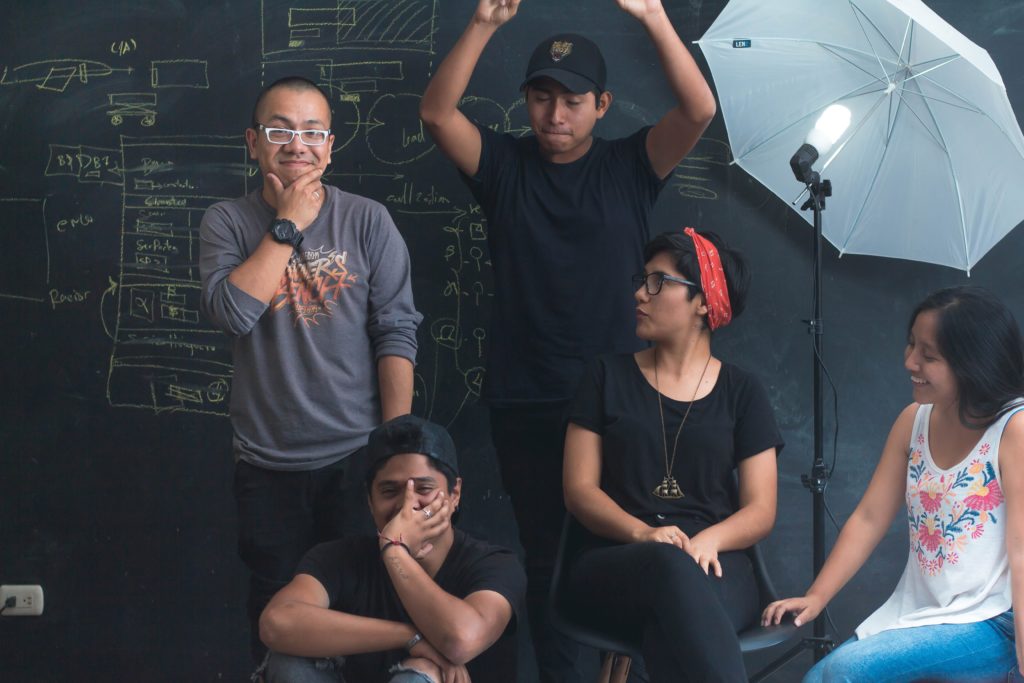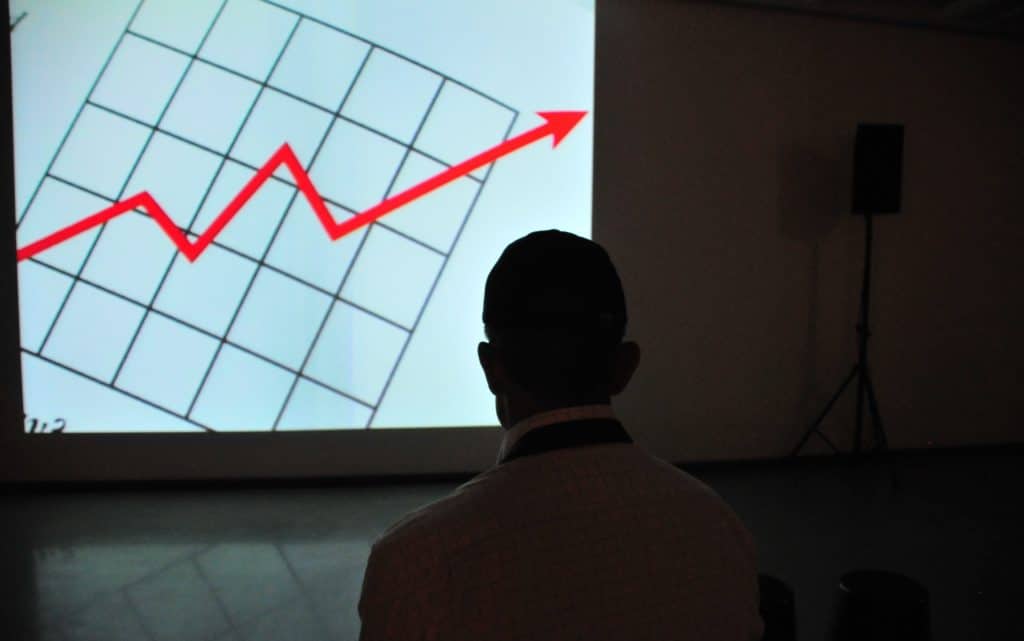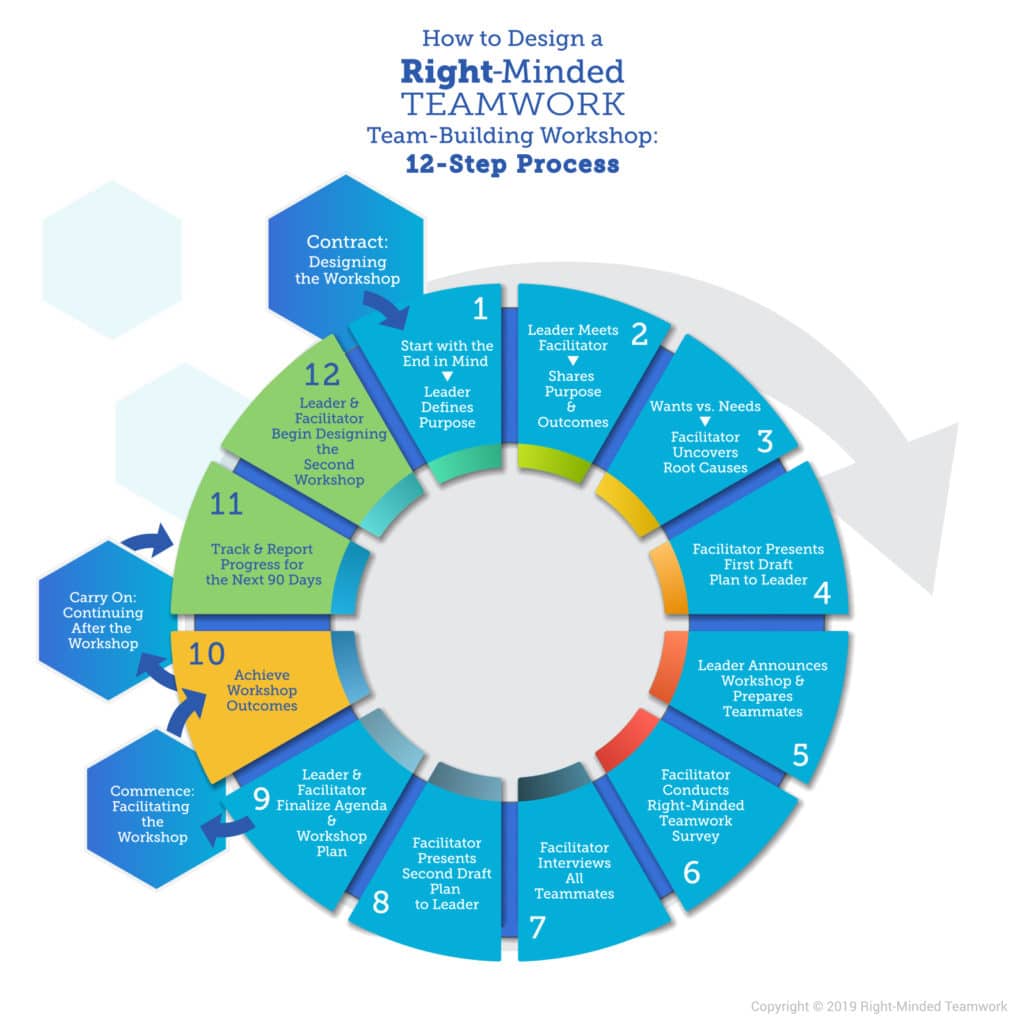What is the best team building exercise you remember doing? Chances are, it wasn’t answering silly ice breaker questions. Use our team building questions for team facilitators, instead.

While it may be fun to learn about your coworkers’ favorite foods, pet peeves, and what they’d want to have with them if stranded on a desert island, it’s not the firm foundation teams need to thrive and grow.
Surface-level games often feel more like a reality tv show than a way to bring team members together.
Team Bonding versus Team Building
The problem is most “team building” activities are actually just team bonding activities. Team building and team bonding, while used interchangeably by many companies and organizations, are not the same thing.

While team bonding provides a shared experience for the team, it does not address real team issues.
Team building, on the other hand, focuses on the team’s problems and challenges. Real team building brings team issues to the forefront so they can be addressed directly. Team facilitators use our team building questions to surface those issues which help bring the team together.
Bringing a Team Together
The RMT 12-step workshop design process all but guarantees you, as the team facilitator, will help teammates surface those real issues so they can be resolved.
Imagine how amazing it would be if all your teammates willingly extended forgiveness and happily corrected team mistakes, rather than reacting defensively and attacking one another.
To achieve that goal, you need more than a simple list of icebreakers.
For a team to come together, they need to trust each other. The Right-Minded Teamwork (RMT) approach, developed by Certified Master Facilitator Dan Hogan, encourages teams to collectively identify and implement team-based solutions.
By focusing on cause and effect – the impact of one team member’s thought patterns on the behavior of other team members – RMT helps facilitators get to the bottom of underlying team issues. Once issues are clearly identified, RMT offers teams the opportunity to address their challenges in a forgiving and non-condemning way.
In this safe environment, difficulties are easily overcome. When a team leader and all members of a team embrace their desire, willingness, and ability to change, cohesion, unity, and improved team performance are the inevitable end result.
Does RMT sound like the solution you’ve been seeking?
Team Building Questions for Team Facilitators
As a team facilitator, how do you encourage your team to change?
In the past, you may have used questions like:
- Who inspires you?
- If you could be any animal, what would you be?
- What’s the worst job you ever had?
Unfortunately, questions like these do not align with the key aspects of team building training. To truly address team dysfunction, you need answers to much bigger questions, such as:
- How can my team leader increase her confidence?
- How will I guide teammate interaction and communication to finally reach a compromise?
- How can I ensure my client will effectively lead team meetings?
- How do I support my team in getting better at project management?
- How can I teach my team to make better decisions?
- When conflicts arise, how can I encourage healthy conflict resolution?
If you’ve been asking questions like these but still don’t have answers, it’s time to give Right-Minded Teamwork a try.

“[Right-Minded Teamwork] takes you straight to the root of team dysfunctions and gives you proven, step by step tools to improve team function and deliver results.”
~Robin Hensley, former Sr. Director, Hewlett-Packard

Creating a Strong Team with Right-Minded Teamwork
Maybe your team struggles with diversity. Perhaps you’ve observed a lack of trust among teammates. Or maybe different communication styles are causing arguments to arise.
No matter the specifics, an unstable team environment can leave team members feeling uncertain and unsupported, which negatively impacts productivity and overall team performance.
3 Team Building Tools
Resolving team issues like these can feel dauntingly complex, but the Right-Minded Teamwork model breaks down the team building process into just three, easy-to-grasp tools and outcomes. All three tools are intentionally incorporated into the 12-step methodology for creating true team building workshops.
- Work AgreementsA Work Agreement is a collective teammate promise to transform non-productive, adversarial behavior into collaborative teamwork behavior. More lay the foundation for respectful, willing teamwork by clarifying and documenting how team members agree to work together. By offering the whole team a single set of clear expectations for performance and behavior, Work Agreements allow for effective, meaningful work.
- Team Operating SystemRMT’s Team Operating System is a six-step, 90-day, continuous improvement system that organizes team functions to increase the likelihood of achieving customer satisfaction. More outlines a team’s processes and procedures, including each team member’s role on the team and how being effective in their role is essential for the team to reach its goals. With a unifying picture of how they will together achieve success, all team members can work confidently and collaboratively towards the end goal.
- Right-Minded Teammates encourages team members to think about the team as a whole, rather than a collection of individuals. Instead of highlighting and punishing poor performance, team members agree to remain focused on supporting one another because they know they are stronger together.
Though it may sound simple, these three powerful tools have proven their effectiveness time and time again, correcting everything from ineffective work processes to zero motivation to poor performance. In the past 35 years, RMT has brought together over 500 teams in seven countries, solely under the expert guidance of RMT creator and Master Facilitator Dan Hogan.
Now, his tools are yours. By embracing RMT’s straightforward, continuous improvement loop for teams of all sizes, you can turn around even the most challenged, dysfunctional team.
Ready to experience real team building and growth without silly games, personality assessments, or other ineffective and indirect team bonding approaches? It’s time for Right-Minded Teamwork.
